Land Planning & Acquistion
LAND PLANNING & MANAGEMENT
The Niagara Peninsula Conservation Authority (NPCA) plays a vital role in the conservation of natural areas across the Niagara Peninsula watershed. This includes the thoughtful planning and sustainable management of NPCA conservation areas.
Land planning directs the overall design of each conservation area, while land management ensures the sustainable use and enjoyment of these areas by the public. Together, land planning and management are a Category 1 program and service under the Conservation Authorities Act and Ontario Regulation 686/21: Mandatory Programs and Services.
Land planning efforts are guided by comprehensive management plans that reflect NPCA’s vision of increasing access to greenspace while safeguarding the ecological integrity of the watershed. All management plans for NPCA conservation areas are guided by the Conservation Areas Strategy (CA Strategy), which ensure that each plan aligns with NPCA’s vision, mission, and priorities set out in the NPCA Strategic Plan.
CONSERVATION AREAS STRATEGY
The Niagara Peninsula Conservation Authority (NPCA) developed a Conservation Area Strategy (CA Strategy) focused on sustainable management, long-term planning, and alignment with NPCA's strategic goals, ensuring compliance with the Conservation Authorities Act.
The CA Strategy provides high-level guidance for managing NPCA conservation areas, focusing on biodiversity, climate change, invasive species, and greenspace accessibility, with specific site priorities to be outlined in future management and action plans starting in 2025.
As you read through the strategy, you will learn about programs and services and the land use classifications that will inform the general purpose for each conservation area. The CA Strategy also explores how NPCA’s conservation area system augments local or regional natural heritage features and how they connect to local public lands.
Through the CA Strategy, NPCA conservation areas were grouped into three categories:
- Active Recreation (4)
- Passive Recreation (16)
- Natural Heritage & Hazard Lands (21)
The following goals will provide direction for management and long-term planning for conservation areas:
- Protect and Restore
- Connect and Enhance
- Adapt and Sustain
- Inspire and Engage
CONSERVATION AREA MANAGEMENT PLANS
The NPCA intends to begin working on several conservation area management plans. These plans are guided by the CA Strategy and reflect NPCA’s strategic priorities.
Stay tuned for opportunities to get involved in the following management plans:
- Beamer Memorial
- Woodend
- Morgan’s Point
- Cave Springs
- Rockway
By focusing on the unique characteristics of each conservation area, NPCA is committed to safeguarding their natural heritage and biodiversity for future generations while providing meaningful opportunities for people to connect with nature.
LAND ACQUISITION & SECUREMENT
Since the 1950s, NPCA has been securing lands for conservation, restoration, and public access. To date, NPCA is protecting over 3,100 hectares of environmentally significant lands across 43 properties.
NPCA’s land acquisition efforts are guided by the Conservation Authorities Act and supported by NPCA’s Strategic Plan. These efforts are essential to the sustainability of the Niagara Peninsula watershed - supporting biodiversity protection and improving climate resilience. Natural heritage and natural green infrastructure also provide life sources and benefits that are integral to a sustainable watershed, such as providing access to local greenspace, clean air and water, and protection from natural hazards like flooding and erosion.
Because many ecologically valuable areas are privately owned, collaboration with landowners, land trusts, municipalities, and Indigenous communities is essential. This collaborative approach ensures that conservation priorities are met while benefiting the broader community.
Land Securement Strategy
NPCA’s Land Securement Strategy (LSS) provides a pathway to expand NPCA’s network of protected areas. Designed to complement existing conservation programs, the LSS identifies and prioritizes potential lands for securement and outlines methods of establishing meaningful partnerships with landowners.
NPCA’s Strategic Plan calls for the development and implementation of a land acquisition strategy to achieve Goal 1.4: Manage lands to increase biodiversity, habitat, connectivity, and natural cover. Implementing a land securement strategy also directly supports achieving Goal 3.1: Create equitable access to greenspace for the health and well-being of people, as well as several other strategic goals and performance measures related to natural hazard protection, ecosystem improvements, and building relationships with community partners.
Through the LSS, NPCA acquired five new land parcels totalling 125.8 hectares in 2025. These acquisitions helped NPCA meet its 10-year land acquisition target in just two years. Each property holds significant environmental value and contributes to NPCA’s conservation efforts and the natural heritage of the Niagara Peninsula watershed.
Land Conservation and Acquisition Options
NPCA is dedicated to protecting land in the Niagara Peninsula Watershed. To date, NPCA has secured over 3,000 hectares of conservation land with help from generous landowners who love nature as much as we do, grants and external funding, as well as municipal and conservation partners.
If you are interested in contributing your land or wish to support conservation efforts, you have many options to choose from when protecting land, and NPCA is available to help you through the process.
Land Donations
EcoGifts Program: You can donate land to the NPCA through government programs such as the Ecological Gifts Program (EcoGifts Program) and receive tax benefits under the Income Tax Act. These benefits include an exemption of capital gains tax on the donated land and the ability to claim the full value of the donation as a tax credit, up to 100% of your annual income. Any unused credits can be carried forward for up to 10 years.
Bequests: This is a flexible way to support local conservation through land donation or funding towards future land acquisition. A bequest can be a donation of land or funds in your Will to leave a legacy and protect cherished property for generations to come.
Split-Receipts: A split-receipt allows you to receive a cash consideration for your donation of land to the NPCA. The amount is based on the difference between the property’s appraised fair market value and the value of the donation. This value is determined by a qualified appraiser and depends on whether the NPCA has, or can raise, the necessary funds.
Trade Lands: If you wish to donate or bequeath your property, but it does not contain significant environmental features, or is not within a priority area, the NPCA can accept the gift with the intention to sell it and direct the proceeds into the securement of more strategic lands.
Purchases
Fee-Simple: You may choose to sell your property to the NPCA. Depending on cost, location, and environmental significant of the property, the NPCA may consider the transaction. Realtors may be involved but are not required.
Direct Conveyance: A direct conveyance allows you to transfer part of your property to the NPCA and retain any desirable assets, such as your residence or other buildings and infrastructure.
Conservation Easement: If you wish to keep ownership of your property but ensure its protection, a conservation easement can grant limited rights of use to the NPCA. Note that the NPCA may not accept all conservation easements in accordance with NPCA’s Land Securement Strategy and conservation priorities.
Agreements
Lease or Agreement Lands: Instead of taking full ownership, the NPCA can enter into a lease or management agreement to use and care for land for a set period of time. This helps protect ecologically valuable areas without a title transfer.
Land Exchanges: In some cases, you may trade land with the NPCA in exchanged for surplus land owned by the authority. These exchanges are based on fair market value, as determined through professional appraisals (not hectare for hectare). Each exchange is carefully evaluated to ensure it supports conservation priorities and public interest.
Life-Interest/Extended Tenancy: This allows you to donate land to the NPCA and continue living on or using it for a fixed duration of time. This duration can be your lifetime, or a specific term agreed on by both parties.
ACQUISITION SUCCESS STORIES
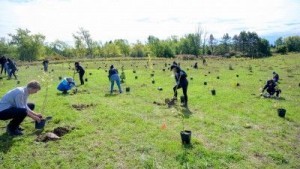
HYSLOP PARCEL
Adjacent to Binbrook Conservation Area, this property was acquired in 2019 with support from the City of Hamilton through their land acquisition funding.
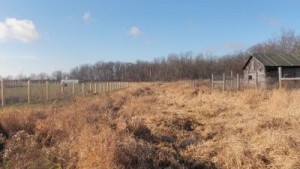
LAKEWOOD PARCEL
A 70-acres Environmental Conservation Area and Significant Woodland, serving as a vital habitat and migratory stopover for birds, bats, and butterflies.
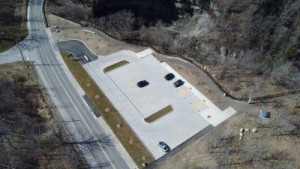
ROCKWAY PARCEL
1.12-acre property, considered one of the Niagara Peninsula watershed’s hidden gems, as it is part of the Niagara Escarpment, with significant ecological features, flora, fauna, and recreational assets.
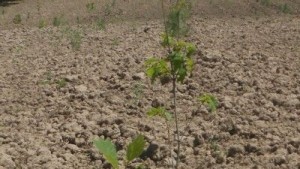
LATHROP PARCEL
4-acre (18-hectare) parcel of land in the Town of Pelham. Located within the Niagara Escarpment Plan area and designated Escarpment Natural and Protection.
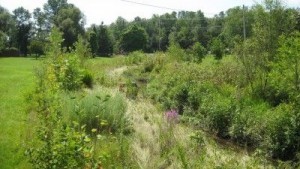
OPG PARCEL
An approximate 8-hectare parcel located on the South side of the Welland River, North of Rexinger Road in Niagara Falls. It boasts a PSW, Regionally Significant shoreline and woodlands and is home to several Species at Risk (SAR).
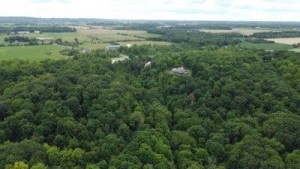
GOERTZEN PARCEL
Features close to 4 hectares integrating with Rockway Conservation Area. An ANSI with significant escarpment features, this parcel offers opportunities to enhance the user experience in this natural setting.
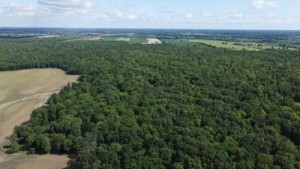
FRALICK PARCEL
Located near Ruigrok Conservation Area, it forms part of one of the largest natural areas in the watershed. It encompasses approximately 19 hectares of Provincially Significant Wetland (PSW), woodland and a Life Science Area of Natural and Scientific Interest (ANSI).
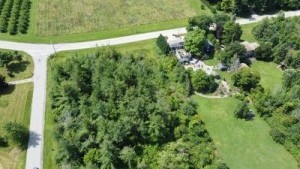
Klassen Parcel
Adjacent to Beamer Memorial Conservation Area. This 6-hectare property safeguards important escarpment features and will provide greater access to greenspace and the scenic views of the Escarpment and Lake Ontario.